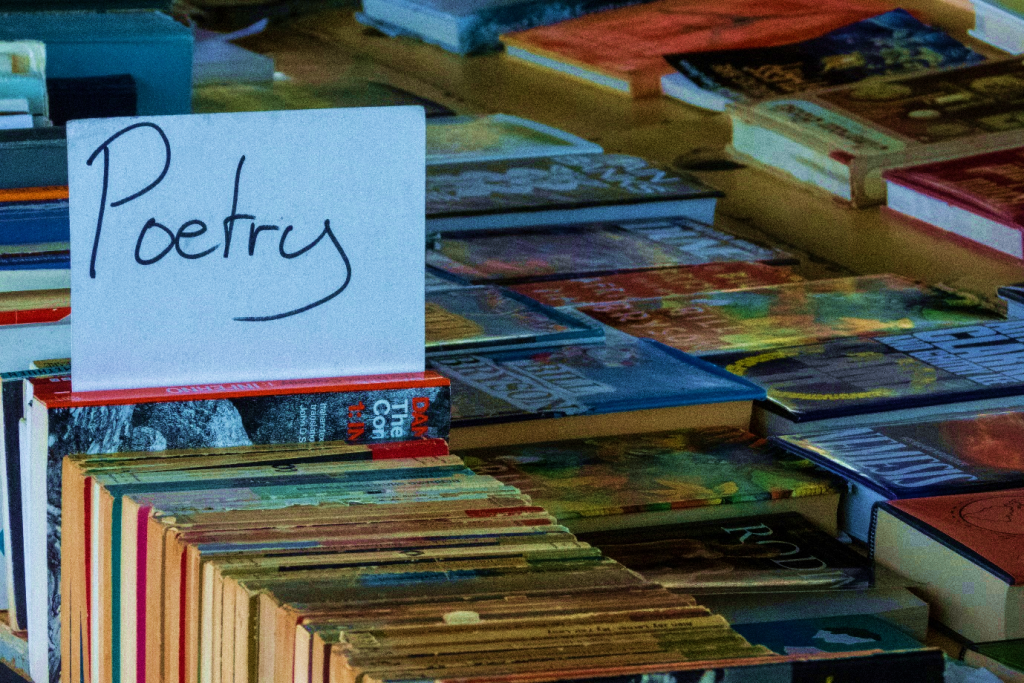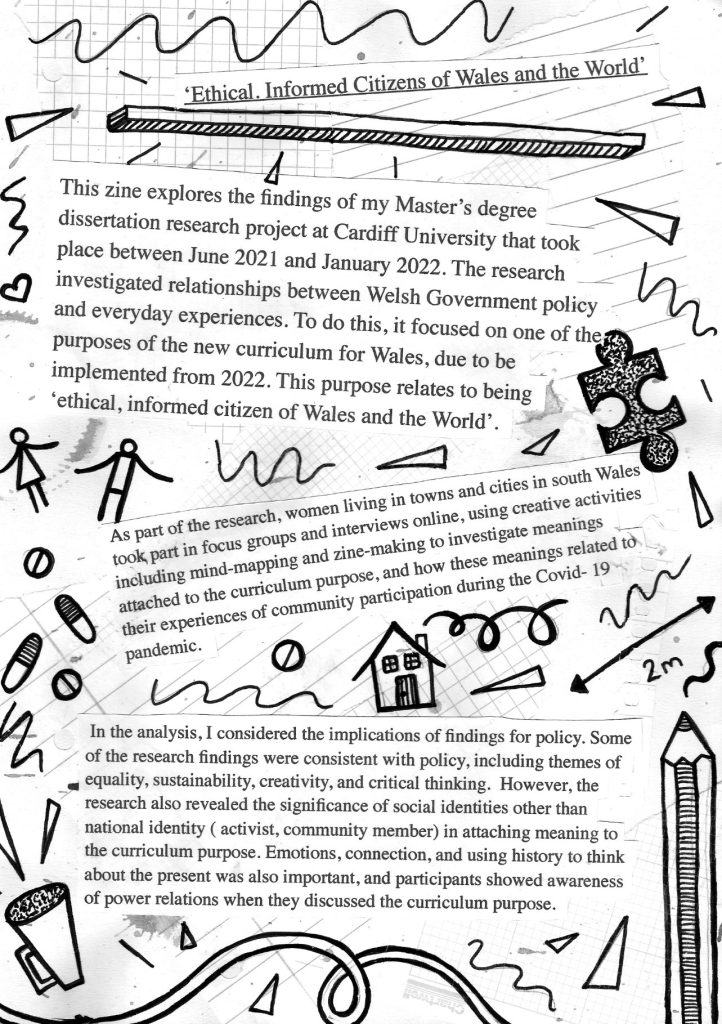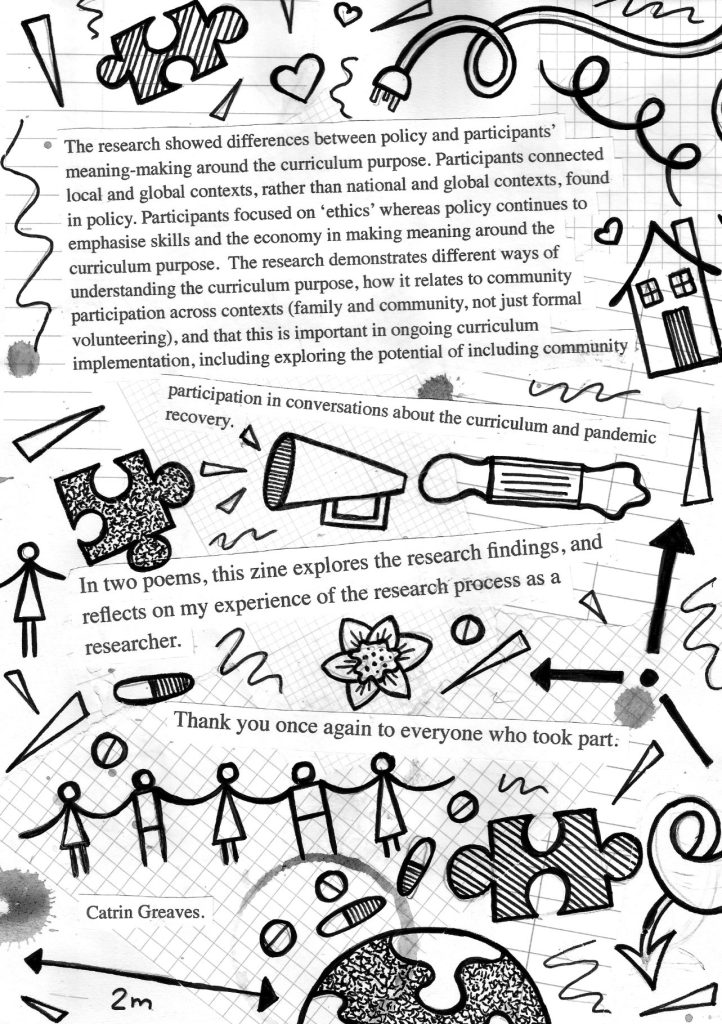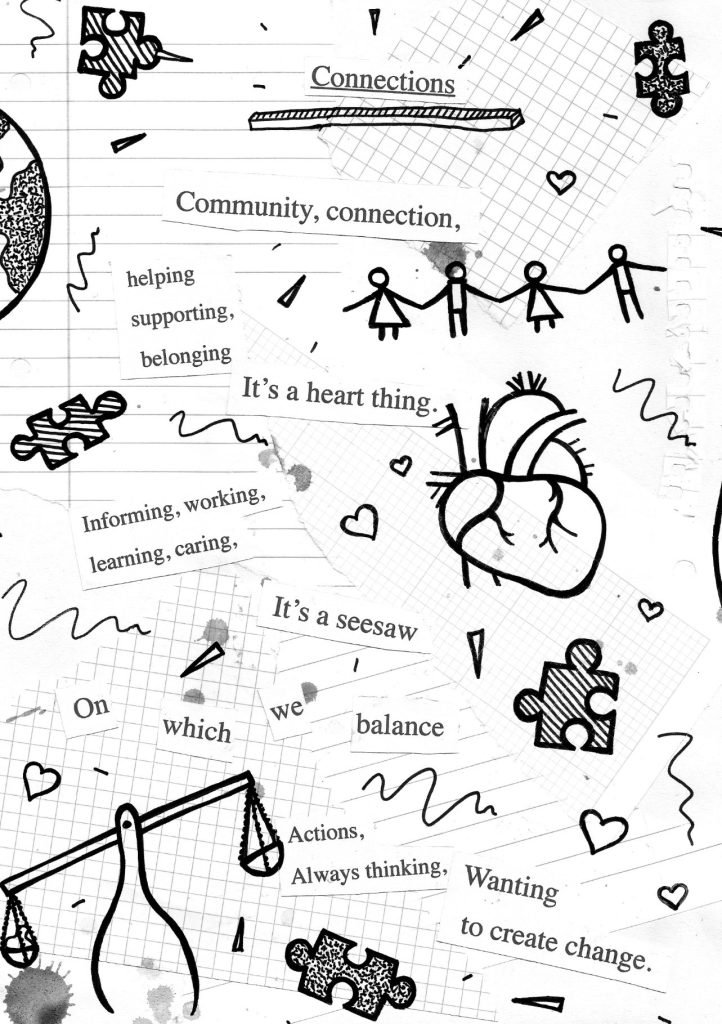
Anneka Owens
To mark the end of Disability History Month, I have written this blog on my relationship with my disabled identity and my research methods. It maps the road to acceptance and how that has brought my research methods closer to the person being researched.
A bit about me
I am a third year 1+3 ESRC funded PhD student at Cardiff studying equality and access to justice in Wales. I was diagnosed with a limiting health condition the day before starting the SSRM. Interestingly, as my relationship with my new disabled identity changed, so did my research methods. This was subconscious at first but became more conscious as my identity strengthened. This blog takes you on the journey that I’ve faced from denial and detachment to pride and full incorporation.
The Social Science Research Methods Dissertation
During the SSRM, I hadn’t fully embraced my identity as a disabled person and instead focused upon somehow returning to the ‘norm’. My desire to keep pace with the standards set for people with no limiting health conditions was because I was still ableist in my views. My health condition was the problem that had to be overcome and I just had to somehow achieve the same standards and timescales as everyone else no matter what – my illness would not deter me from my goals. This was an attempt to detach my illness from my sense of self.
Distancing of illness from the person was also subconsciously reflected in my chosen research methods for my SSRM dissertation. I chose to study equality and access to justice in Wales by undertaking a secondary analyse on a leading legal needs survey from an equality perspective. This is arguably one of the most detached method for analysing equality.
My research found that representation of vulnerable groups was too small for accurate analysis and even pooling surveys did not substantially improve the situation. What did become known was that disabled people in Wales face legal disadvantages at a disproportionate rate compared to their English counterparts. Despite these findings for disabled people in Wales, I still didn’t identify as belonging to this group.
The findings from my Masters dissertation helped shape my PhD research design. The initial research proposal detailed a mixed methods approach – more secondary quantitative analysis followed up with a small number of interviews to provide case studies on the experiences of disabled people in Wales.
At this point, my disabled status was still separate from my identity but I was more accepting of my condition and the limitations I was experiencing. However, Covid changed my research method and my relationship with my disabled status…
The unexpected impact of Covid
The challenges that came with Covid were extreme and hastened my acceptance of my disability but it also exemplified more than ever that my health was not the only disabling factor. People’s attitudes towards reasonable accommodations magnified any limitations that I had and truly left me feeling isolated from society and disabled in an insurmountable manner. My experience during Covid was an exemplar of the social model of disability. I have an impairment as a result of my health condition but I am disabled by societal structures. This realisation, and frustration with the system, embedded my identity as a disabled person and became a source of strength and pride. I no longer wanted to detach myself from the community I was researching as it is my community and disabled people deserve a voice and control over their lives, including research conducted in their name.
The strong belief that my community (disabled people) deserve a voice meant that when I had to alter my research proposal to compensate for lost time due to Covid, the disuse of quantitative methods was a natural choice. At the time I felt that the method was too detached from disabled people and treated disability as homogenous. Nor did the homogenous approach reflect lived experience and the social model of disability.
As my research progressed it became clear that there was no need to be conducting the interviews with disabled people in Wales. However, my identity as a disabled person and the conviction that disabled people need to be included in decisions that affect them, resulted in interviews remaining and instead of case studies on a few people, interpretative phenomenological analysis would be undertaken to provide a deep dive into the experiences of disabled people in Wales and the disabling barriers they face by society. I also want their feedback on the framework that I am designing to analyse equality in Wales so that I could include the people who the framework is designed to help. Co-production could not be achieved, but I could achieve a deep level of engagement with my participants.
ESRC DTP Wales Welsh Government Internship

Just when I had begun to reject the utility of quantitative methods for analysing disability, an internship was posted that was a replica of my SSRM dissertation but this time involving secondary analysis using the National Survey for Wales. Part of the internship’s remit was to produce recommendations for the improvement of how equality data is captured and presented for the newly established Equality, Race, and Disability Evidence Units (the Units). I was fortunate enough to secure the internship and I have just one week left in the 6 month placement.
I honestly thought that the National Survey data would not provide any new avenues for exploration of disabled people in Wales. Like nearly all household surveys, disability is treated as a binary output so provides limited scope for change or innovation, or so I thought!
The National Survey recorded respondents’ illnesses, allowing up to six to be detailed. The National Survey groups these illnesses based on the chapters of international diseases. Forty-one variables are created from these illnesses that relate to various parts of the body. This approach does not reflect how I identify as a disabled person nor does it reflect the social model of disability.
Luckily, the National Survey team and the Disability Disparity Evidence Unit let me experiment with a novel approach that matched my beliefs and reflected the lessons learnt from lived experience. The illnesses listed by respondents could be recoded into impairment categories. People who had physical, mental health, cognitive including neurodiverse, and sensory and communication impairments could be analysed in the National Survey data offering brand new insight on existing data. This approach better reflects the social model of disability and evidence how much society disables people with different types of impairment. The findings were illuminating and have been passed on to the Disability Rights Taskforce.
Where I currently stand
Over the course of my PhD journey, my identity has influenced my methods multiple times and the internship is another example of this. No method need be dismissed for researching disability as long as it is not constructed through a complete detachment of the subject matter especially if the researcher does not have lived experience because this knowledge matters when constructing questions and categories. Co-production is a key part of including lived experience, even within the most detached of methods. Achieving this level is difficult but it is an aim I work towards as it closely aligns my methodological choices with my strong identity as a disabled person and the commitment to full inclusion that stems from this identity.
Currently I proudly identify as a disabled person and use this as a source of inspiration, but as I’ve explored, my identity constantly evolves and this may result in a further evolution of my research methods.




